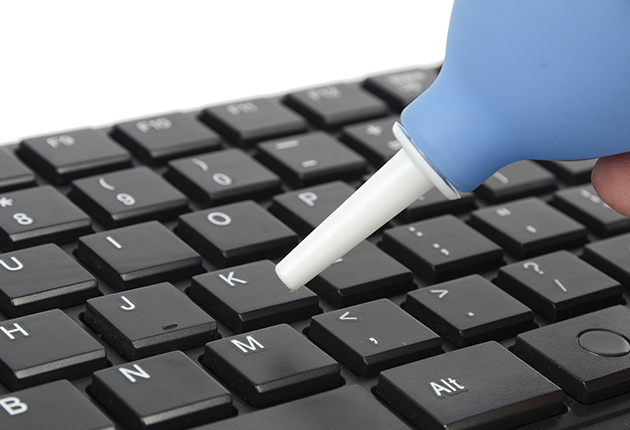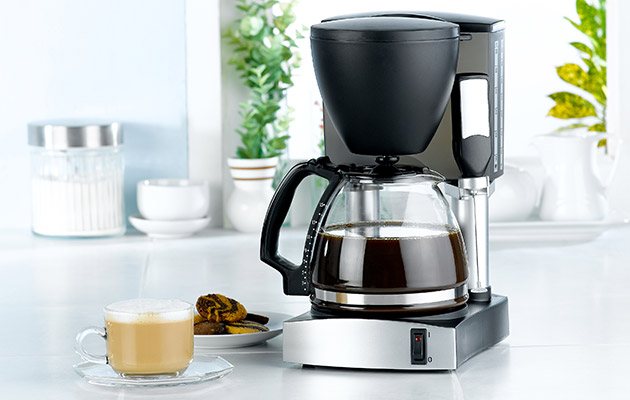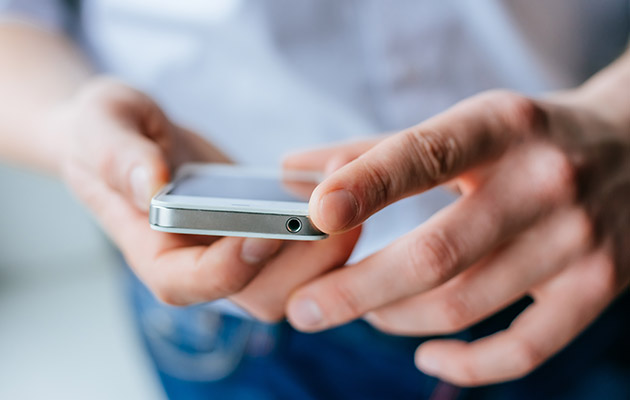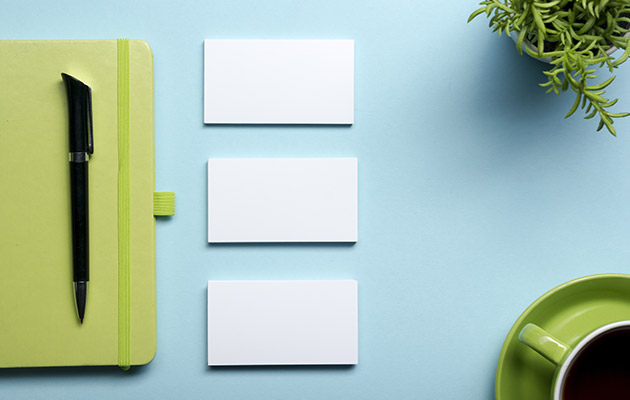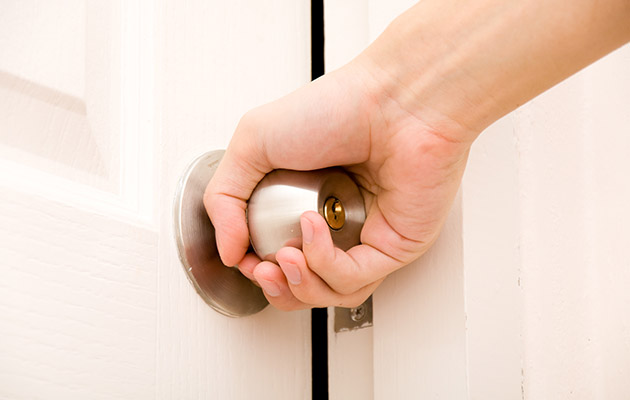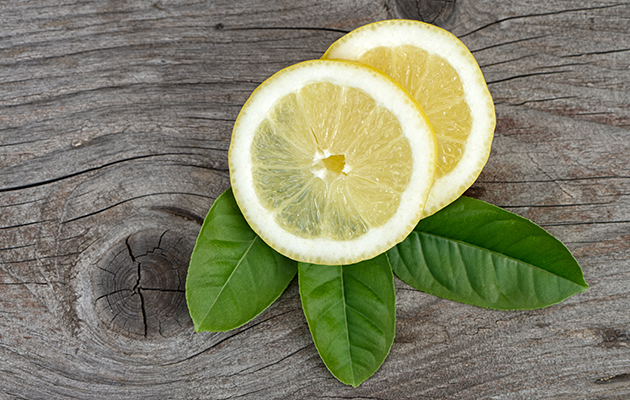Ever wonder why your flu is getting worse each year? Well, one of the main culprits could be the office – a battlefield between us and bacteria. We spend a lot in the office interacting with people and also snacking on our desks, leading us to come into contact with plenty of bacteria regularly.
Disinfect your monitor screens, keyboards and mouse
How many of you actually keep your computers and accessories clean? Cleaning your computer is crucial as it also prolongs the computer’s lifespan. Studies have shown that your computer contains ten times more bacteria than a toilet seat. One reason is because a lot of office workers spend their lunch hour eating at their desk – often surfing the net or working at the same time. This leaves food residue everywhere, particularly on mice and keyboards, making them ideal breeding grounds for nasty bacteria to breed and live in.
Here’s how you can clean and disinfect your computer on a regular basis:
Keyboard:
Ensure that your laptop or computer is still switched off. Then, remove loose debris and dust with a compressed air canister. An alternative is to run some sticky tape between the keys. For better results, fold the sticky part in half to collect any dirt that are caught between the keys. Finally, wipe the keyboard down with a wet wipe or an antibacterial wipe.
Mouse:
Your mouse is like a bacteria magnet. Aside from food residues, imagine the amount of dead skin, fingerprints and germs iving on your mouse. Wipe the mouse with a damp microfiber cloth, making sure that moisture doesn’t get into any openings. Then, disinfect the mouse with a disinfectant wipe and let it dry before using.
Screen cleaning:
Turn off the monitor and wipe down the screen with a damp microfiber cloth or wet wipes that are specifically made for monitor screens. Avoid antibacterial wipes as they contain alcohol that could remove the screen’s protective coating.
Clean out your coffee machine
Nothing is better than a good cup of coffee to keep you awake at work. But a mouldy cup sounds anything but appetising. A 2011 study found that 50% of coffee makers had nasty mould growing in the reservoirs, which contained higher germ count to your bathroom door handles and toilet seats. Before you rush to clean out the bacteria, take note that hot water alone isn’t enough to get rid of the germs and mould.
An effective cleaning agent is vinegar, which sanitizes and decalcifies the mineral buildup from tap water. Also, clean the outside of the coffee machine with the damp cloth and a surface cleaner! Give it a gentle clean every fortnight for a fresh mold-free cup!
Stop using your phone in the loo!
It is a fact with most Singaporeans that we cannot stand to be separated from our mobile phones, even for a few minutes. Similar to keyboards, smartphones has also been found to have ten times more bacteria than a toilet seat. This is because 75% of us use our mobile phones in the bathroom.
It was found that the dirtiest handphone contains 170 times more faecal coliforms than acceptable levels! So, the next time you visit the toilet, leave your phone in your bag! To clean, switch your devices off and remove your phone covers before cleaning. Clean your phone regularly with a microfiber cloth. For a deeper clean, disinfect and remove excess dirt with a mixture of water alcohol or water and vinegar. Soak your silicone phone covers in warm, soapy water, this should help to remove any discolouration. When you’re done with cleaning, leave the phone to dry completely before turning it on again.
Crumb free Work desk
Created a mess after finishing your takeaway? Did you know that your desk has about 10 million germs? To clean out your lunch mess, cookie crumbs and even coffee spills use wet wipes such as antibacterial or baby wipes. Always keep a packet at your desk and swipe them over your desk when you think they deserve a wipe down. Nothing is worse than a sticky table.
Your coffee mug is not as clean as you think
We all have that one office cup or water flask we leave on your desk that we use for our coffee and tea. How often do we take them home for a good wash? I’m sure most of us are guilty of washing them with just tap water. But did you know that 20% of office mugs contain fecal bacteria? That is why cleaning your office mug is more important than you think.
You should take the mug home daily to be washed in the dishwasher, and make sure it goes through the dry cycle, which uses the hottest temperatures to zap every single germ.
However if you prefer leaving your coffee mug in the office, this is how you can clean it properly: Fill your cup or water flask with hot water from the water cooler at the office pantry. If you do not have one at the office, use a microwave instead. Next, add some dish washing liquid into it and just a little tap water and leave it for a couple of minutes before rinsing it off.
Disinfect Doorknobs
Doorknobs are often overlooked when it comes to office cleaning and it’s scary to think that these items come into human contact several times a day, but rarely come into contact with a cloth, making them the perfect breeding spot for bacteria! The consequences? Cold viruses and worse. It is also a fact that these type of viruses can survive on this type of surfaces for around 24 hours or longer.
Disinfect these surfaces with a dab of vinegar on a cloth.
Neutralise the bad office odours
Coffee spills, leftovers from lunch or trash odours can cause a stench in the office. To solve this problem, add a few drops of lavender or lemongrass scented essential oil to a spray bottle and fill it up with water. Shake it well and spritz away at the area that smells the most.
Bonus tip: Lemon fresh your stinky trash bin
Your dustbin is often over-used and highly neglected! If the smell from your bin is bothering you, all you need is some lemon to solve this nasty situation. The citric acid from the lemon acts as a natural disinfectant that removes dirt and odour. Simply slice a lemon in half and rub the inside of your trash bin for a fast and eco-friendly clean.


